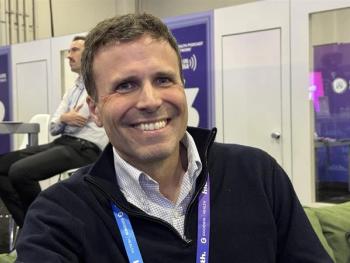
Consumer testing gives laboratories chance to shine | Mark Dorner
Smaller laboratories have an opportunity to grow their businesses by offering their own end-to-end testing services, the founder of PreciseMDX says.
Prior to the pandemic, the U.S. Centers for Disease Control and Prevention estimated that U.S. physicians ordered about
While patients delaying care during the pandemic may have reduced the number of routine labs, about 750,000 COVID-19 tests are performed each day, which explains the huge increase in the number of accredited labs in the past two years.
Since the beginning of 2020, the number of new labs has doubled from 15,500 in 2019 to more than 31,000 in 2021, according to Nathan Harrington, founder of LabProspects.com.
The need for COVID-19 testing will drop as the world comes to terms with the pandemic through prevention and vaccines. For new and existing labs, the question then becomes: How does the company survive amid lower testing volumes?
Consumer interest in testing beyond the physician office brings new attention to testing, evidenced by the emergence of Everlywell, the Texas-based company producing at-home test kits. Consumers can choose from nearly three dozen tests for home use that range from general health to sexually transmitted infections (STIs). Quest Diagnostics has teamed up with CVS in certain markets to offer on-site testing.
Smaller and independent laboratories have an opportunity to stabilize and grow their businesses after the pandemic by offering their own end-to-end testing services aimed at consumers.
Patient expectations are changing
At a time when consumers can use a mobile app to find a new vehicle, add accessories, arrange financing, pay and take delivery, paying to visit a physician for routine testing seems quaint. Younger generations who are digital natives use their phones for absolutely everything.
Part of the issue is convenience, but the other part is cost. If you suspect you have the flu or COVID-19, a visit to a doctor will cost you at least the co-pay and perhaps the entire bill, depending on your insurance. The physician will order tests, and you’ll get the results in a day or two.
But if you can order the tests directly for $25 each, take them at home and get the results in the same time frame, why wouldn’t you?
Women’s fertility, STIs, diabetes, colon cancer screening and many other routine tests are available online and at retail locations. Many of these and other tests are direct-to-consumer – eliminating the need to require a doctor’s prescription.
Because consumer demand for laboratory tests is changing, labs must realize that the status quo may not ensure ongoing business viability.
Choice and convenience
The University of California, Los Angeles (UCLA) developed a novel COVID-19 test that returns results in under 24 hours.
Students, staff and faculty pick up a test kit at an
The movement of testing to retail environments isn’t a question of if, but of when.
In addition to Everlywell and Quest, local and regional labs are starting to partner with pharmacies to offer testing at the retail level. Comprehensive lab software makes this possible, automating many of the processes required to manage and process tests in a timely fashion.
Pharmacies and grocery stores that private label health and beauty aids likely can see the value of private label lab tests they can brand at a lower price than name brand tests.
Like UCLA’s COVID-19 vending machines, branded vending machines on school campuses and in office buildings, warehouses, manufacturing facilities and other locations can encourage employees to take COVID-19 tests at the first hint of illness. Other tests can also be offered for screening for STIs, diabetes and other illnesses. The cost of tests can be subsidized by the employer’s insurance as an incentive to participate in wellness.
Moving from testing to value
Laboratory testing is predicated on three variables: price, turnaround time and quality. The latter attribute is assumed, since labs are monitored and inspected by the government on a regular basis. So that leaves price and turnaround time as differentiators.
But there is an emerging variable where top labs can truly shine: consumer experience.
As testing continues to move beyond the physician’s office and the hospital, consumers want easy and intuitive processes to order a test, take it and receive the results. Each test may have different processes and turnaround times, so labs must have the right software in place to map each test and retail channel to provide a superior consumer experience.
For example, fertility testing generally isn’t covered by insurance. A physician could “prescribe” that so a woman can track her fertility for the next 12 months, directing her to a particular store or website to secure the tests. She takes one each month, with the results going to the physician.
Healthcare generally lags other industries in the adoption of technology, and fundamental changes are coming to laboratory tests, including how and where they are ordered and by whom.
Conclusion
The overwhelming need for COVID-19 testing will inevitably fade, which will prompt enterprising laboratories to uncover new revenue streams through additional testing methods.
Consumer demand for and acceptance of testing outside the walls of a physician office or hospital present growth opportunities for those labs willing to invest in laboratory software that’s sophisticated enough to allow the management and tracking of patient journeys from test purchase to transmittal of results.
Millennials and other digital natives are upending many industries, including laboratory testing, so the time is ripe to embrace this new paradigm. Employers who value disease prevention to safeguard employee health and rein in escalating healthcare costs are another ripe market, as are pharmacies interested in private label testing.
Fundamental changes are coming to laboratory testing. Will your organization be ready?
Mark Dorner is co-founder and CEO of







































